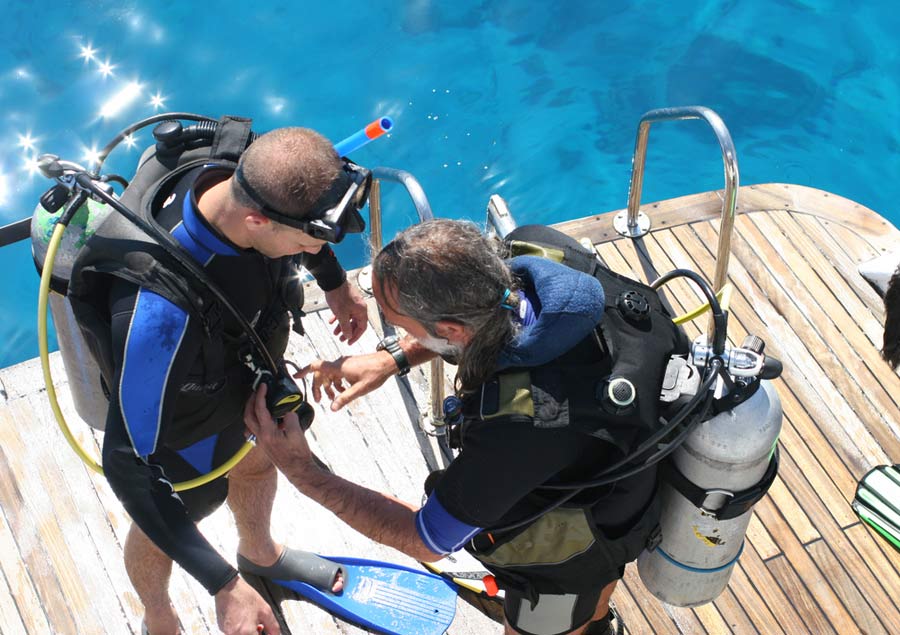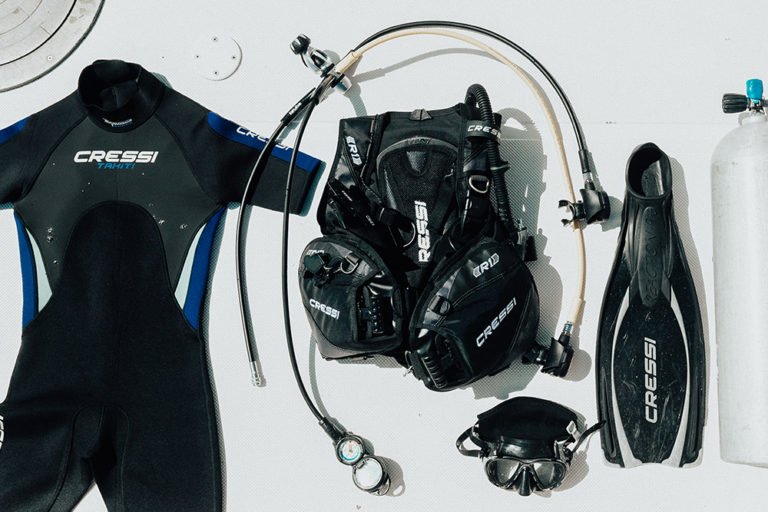Scuba diving is an exciting and adventurous activity that requires specialized gear to ensure a safe and enjoyable experience. However, investing in dive gear can be expensive, which is why it's important to properly care for and maintain your equipment for maximum performance and longevity. In this article, we'll take a closer look at how to care for and maintain your dive gear.
Rinse your gear after every dive

After each dive, rinse your gear thoroughly with fresh water to remove any salt, sand, or debris. Pay particular attention to sensitive areas such as regulators, hoses, and BCD inflators. Use a mild detergent to clean the equipment, ensuring you don't use any harsh chemicals that could damage the materials. Once cleaned, allow your gear to dry completely in a well-ventilated area away from direct sunlight. Proper drying prevents the growth of mold, mildew, and bacteria, which can cause unpleasant odors and deterioration of the gear.
Preserve your wetsuit and drysuit

Wetsuits and drysuits play a vital role in maintaining your body temperature while diving. To extend their lifespan, rinse them thoroughly after each dive to remove salt and debris. Use a mild soap specifically designed for neoprene, avoiding strong detergents that can damage the material. Hang your suit in a well-ventilated area to dry completely, ensuring it's not exposed to direct sunlight, excessive heat, or sharp objects that can puncture it. Apply a suitable conditioner or talc powder to keep the neoprene supple and prevent it from becoming brittle over time.
Take care of your mask, snorkel, and fins

Your mask, snorkel, and fins are essential for clear vision and efficient movement underwater. After diving, rinse them thoroughly to remove salt, sand, and any residue. Inspect the mask for any signs of damage, such as cracks or loose straps. Store it in a protective case or a soft bag to prevent scratches. For snorkels, clean the mouthpiece and purge the valve, ensuring they are clear of debris. Fins should be rinsed and dried, and the straps checked for any signs of wear or stretching. Proper care and maintenance of these items will enhance their performance and prolong their lifespan.
Check your gear regularly for damage

The regulator is the lifeline of your dive gear, providing you with the precious air you need underwater. Regularly inspect the regulator for any signs of damage, such as cracks, worn hoses, or loose fittings. Check the mouthpiece for wear and tear, ensuring it's still comfortable and securely attached. It's crucial to have your regulator professionally serviced according to the manufacturer's recommendations. This typically involves an annual overhaul by a certified technician who will disassemble, clean, and replace necessary parts. Regular maintenance ensures optimal performance and reduces the risk of malfunctions underwater.
Store your gear properly

When not in use, store your dive gear in a cool, dry place away from direct sunlight. Avoid keeping it in damp areas or near chemicals that can deteriorate the materials. Use gear bags or dedicated storage containers to protect your equipment from dust, insects, and accidental damage. Ensure that items prone to deformation, such as BCDs and drysuits, are stored in a hanging position to maintain their shape. Storing your gear properly will safeguard it from unnecessary wear and tear and make it readily accessible for your next diving adventure.
Summary
In summary, every piece of dive gear should be well cared for and maintained so as to prolong its utility. This is important not just for financial reasons but also for safety.
